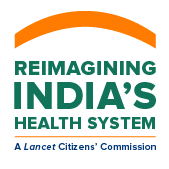In Conversation: Aakriti Gupta is the CEO of Unbound 2.0
November 17, 2022

I am interested in complex adaptive systems and have increasingly been working on the areas of improving resilience using design in the face of an increasing pace of change and complexity. Towards this, my work expands the boundaries of interest to see cause, effect AND feedback in a system, using various techniques – from system dynamics using stock and flow modeling, to Network Analysis to see system interactions, and further towards discovering underlying paradigms that hold the key to change.
Health is a uniquely challenging and complex system due to certain attributes it exhibits – long time delays, principal-agent problem, information asymmetry, deep feedbacks at an individual and a system level. For too long, India has seen the question of health stuck at the questions of funding and quality improvement – with limited conversation about the design and incentives of the system. Add to that, Indian consumer AND voter has exhibited limited power to demand better outcomes from the system. This cocktail of complexity is an interesting challenge to explore. In addition, the health system has also been undergoing massive shifts as disease incidence and profile changes, people live longer, and as we seek health in the form of not just ‘absence of disease’ but also in the form of ‘presence of wellness’.
My work currently intends to further explore the emerging recommendations from the commission and experiment with their rollout in a simulated model that reproduces the health system of India, over a span of 25-30 years. The model, through participatory input, captures the evolution of different sectors of health – from population profile and predisposition to diseases, to the demand for primary vs tertiary healthcare and how that interacts with capacity creation, to financing and governance. In a way, this work brings together and ties up the different threads explored by the various workstreams. We will test recommendations and combinations of interventions across various contexts and explore how they contribute to the goal of UHC.
